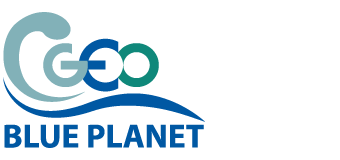3rd GEO Blue Planet Symposium
THE ROLE OF THE OCEANS IN EARTH’S LIFE-SUPPORT SYSTEM
The 3rd Blue Planet Symposium was held in College Park, Maryland, USA from 31 May to 2 June 2017. The symposium was co-hosted by the National Oceanic and Atmospheric Administration, the University of Maryland and the University System of Maryland Foundation.
The symposium served as a forum for discussion of societal information needs resulting from the important role the oceans play in Earth’s life-support system and the challenge of minimizing the impacts of human activities on the oceans while utilizing the resources of the oceans to meet our needs. The symposium served as a platform for the participating communities to exchange information on their activities and identify potential pilot and prototype projects for Blue Planet to focus on in the coming years.
Symposium Presentations
Day 1: Wednesday, May 31, 2017
Welcome and Introductory Keynotes |
||
| Making Ocean Observations Matter | Craig McLean, National Oceanic and Atmospheric Administration | |
| The Group on Earth Observations | Douglas Cripe , GEO Secretariat | |
| The Group on Earth Observations “Oceans and Society: Blue Planet” Initiative | Sophie Seeyave, Partnership for the Observation of the Global Oceans | |
Session 1: The Changing Oceans |
||
| Observing the Changing Ocean | David Legler, National Oceanic and Atmospheric Administration | |
| Understanding Sea Level Change on Global and Local Scales | Benjamin Hamlington, Old Dominion University | |
| The Changing Cryosphere and Impact on Regional Sea Level | Isabella Velicogna, University of California, Irvine | |
Session 2: Threats from Pollution, Warming and Acidification |
||
| Marine Pollution: Status, Trends and Opportunities | Christopher Corbin, UN Environment Caribbean Environment Programme | |
| Marine Pollution and the Toxic Legacy of Our Consumer Culture | Susan Shaw, Marine & Environmental Research Institute | |
| Ocean Warming and Acidification: Present Conditions and Future Projections | Richard Feely, National Oceanic and Atmospheric Administration | |
| Societal Impacts of Ocean Acidification and Warming | Jan Newton, University of Washington | |
| Lunchtime Presentation | Jonathan Ross, Geosciences Australia | |
Session 3: Processes and Life at the Interfaces with the Oceans |
||
| Corals and Climate Change: A Shifting Landscape of Risk | Kim Cobb, Georgia Tech | |
| Tracking Carbon and Nitrogen Pollution from Headwaters to Coasts | Sujay Kaushal, University of Maryland, College Park | |
Session 4: Sustainable use of Ocean Resources |
||
| COVERAGE: CEOS Ocean Variables Enabling Research and Applications | Eric Lindstrom, National Aeronautics and Space Administration | |
| The Copernicus Marine Environment Monitoring Service: Its Use for Marine Resource Applications | Pierre-Yves Le Traon, Mercator Ocean | |
| The Marine Biodiversity Observation Network (MBON): A Global Partnership for the Systematic Study of Life in the Sea | Frank Muller-Karger, University of South Florida | |
| Incentivizing Sustainable Fisheries Management on a Global Scale: The Role of Markets and Science | Werner Kiene, Marine Stewardship Council | |
Day 2: Thursday, June 1, 2017
Day 3: Friday, June 2, 2017
Session 7: Services and Information for the Blue Economy |
||
| Opening Comments | Ralph Rayner, National Oceanic and Atmospheric Administration | |
| The Ocean Economy in 2030 | Claire Jolly, Organisation for Economic Co-operation and Development | |
| The Contribution of Ocean Observations to Weather Forecast and Climate Projection Skill | John Siddorn, Met Office | |
| The Impact of Ocean Observations on Wind and Wave Models for Application in the Offshore Industry | Andrew Cox, Oceanweather Inc. | |
| The Impact of Ocean Observations on Risk Models for Application in the Reinsurance Industry | Dail Rowe, WeatherPredict Consulting Inc. | |
| Lunchtime Presentation
Earth Observation Processing and Analytics Services |
Lauryn Gutowski, EOS Data Analytics, Inc. | |
Session 8: Services and Information for Maritime Awareness |
||
| Opening Comments | Samy Djavidnia, European Maritime Safety Agency | |
| Collaborative Arctic Observations | Vera Metcalf, Eskimo Walrus Commission | |
| Use of Satellite Data and Information for Monitoring Illegal, Unreported, and Unregulated Fishing Activities | Mark Richardson, The Pew Charitable Trusts | |
| Reinforcing and Moving Beyond Pacific SIDS Monitoring of Illegal, Unreported and Unregulated Fisheries Activities | James Movick, Pacific Islands Forum Fisheries Agency | |

